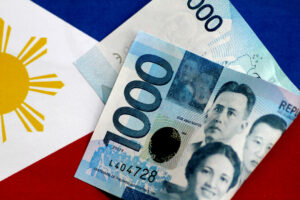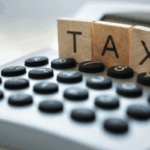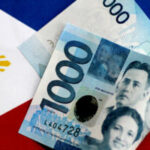
The Bureau of the Treasury (BTR) said appetite for Philippine government securities (GS) remains upbeat, even as capital markets have seen volatility due to concerns arising from alleged corruption in state infrastructure projects.
“The GS market is actually up while the stock market is down. The GS market is very strong, so we haven't seen (the impact). Even our spreads are still very low,” National Treasurer Sharon P. Almanza told reporters on the sidelines of an event on Nov. 26.
“Our domestic curve spread is still very tight compared to US Treasuries and even our ROP (Republic of the Philippines). Our CDS (credit default swap) is still the tightest,” he said.
Ms. Almanza said she did not expect the scandal to have any impact on investor sentiment on Philippine government issuances.
“I think the investigation is making progress. So, we're really hoping this will address some of the concerns that people, our investors, have.”
The government has raised P2.08 trillion from domestic sources as of Nov. 24, close to the full-year program of P2.11 trillion, the Finance Department said. Its weekly Treasury bill and bond auctions have been mostly oversubscribed, leading to a steady decline in yields, and its commercial issuances have also seen strong demand.
Based on the 2026 expenditure budget and sources of financing, the government plans to borrow P2.6 trillion this year, with the bulk borrowed from domestic sources to mitigate foreign exchange risk. This will increase to P2.68 trillion next year.
Analysts said investors view government debt as a safer asset than stocks during times of stress.
Rizal Commercial Banking Corp. chief economist Michael L. “The market's appetite for safe or even the safest investments such as government securities has increased amid the volatility in the local stock market in recent months,” Ricafort said in a Viber message on Friday.
“We may see strong demand in the short term as investors view bonds as a safer option to park money rather than equities.” [and] Additionally, investors are seeing rate cuts, which may gravitate towards bonds to lock in returns,” said Oikonomia Advisory & Research, Inc. Renille Matt M. Ares, a U.S. economist, said in a Viber message.
A widespread corruption scandal stemming from corruption related to government flood control operations has hit the Philippines' economic prospects as weak confidence has hit both public and household spending, with GDP growth falling to a four-year low of 4% in the third quarter. That brought the nine-month average to 5%, putting the government's full-year target of 5.5-6.5% out of reach.
Economic managers have said reaching the growth target could be challenging, but stressed they expect public spending to increase as they work to address governance concerns.
The Bangko Sentral ng Pilipinas (BSP) has also become more dovish due to the soft growth outlook and fragile sentiment. In October, it cut interest rates by 25-basis-point (bp) for the fourth consecutive time, saying it saw the need for a more accommodative policy stance to help stimulate the economy due to the impact of the corruption scandal. It has also indicated further relaxation till next year.
As the glitches are being resolved, domestic markets are becoming volatile. The bellwether Philippine Stock Exchange index fell to a five-year low earlier this month as low as 5,600, and only recovered to the 6,000 mark this week after remaining below that line since late October.
Meanwhile, the peso also hit a new record low of P59.17 per dollar on November 12 and has been trading at P58 to P59 levels over the past two months, with uncertainty about the US Federal Reserve's monetary policy trajectory also contributing to its decline. , Aubrey Rose A. innocente










